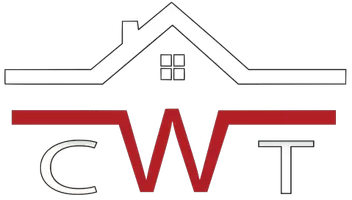A chapter of your life is closing. There’s a lot of money on the table. You may be thinking “Is my house priced too high?” “Too low?” “Am I leaving too much money on the table?” These are big questions.
Luckily, you have a few resources at your disposal to figure out where your house stands among the crowd: a listing agent’s expertise and guidance, plus online property sites to get insight into the market.
So take a deep breath. Then do your homework. The more you know, the more confident you’ll be when it’s time to make those big decisions.

Turn To Our Experts — They Know Their Stuff
The good news: Local market info is freely available online, so you, the seller, can get a sense of what your house is worth.
The bad news: Local market info is freely available online, so most buyers will also have a general idea of what they think your home is worth.
When pricing your house, a listing agent has your back in a way an online property listing site just can’t.
An agent:
• Has real world experience in your community.
• Knows the nuances of your neighborhood’s micro-market.
• Can expertly assess how your home compares to similar ones recently sold in your area.
• Can tour your property to determine, inside and out, where your house fits in the real estate landscape.
A website will do none of the above.
An agent will, yes, consider online market data to help you set the price of your home. But he or she will also rely on first-hand knowledge about your home’s unique perks (and quirks), as well as about the neighborhood, to better inform your listing price.
He or she can also recommend ways to market your house (Instagram-able photos, blog-worthy descriptions, etc.), pro stagers who can set your home up to dazzle buyers, and inspectors and contractors who can make any needed repairs.
That being said, you’ll want to have your own sense of what your house is worth too. As invaluable as a listing agent is to your selling journey, being the seller means you’re also the final decision maker.
So keep your laptop out. We’re going to do a little research.

Additional Resources
At the link below, you'll be directed to the National Association of Realtors seller's subsection. On the webpage, you'll find several links to specific topics such as financing and FSBOs.
Go Directly To Us
We take the stress out of selling your home by providing a seamless experience from start to finish. Reach out to our team at the link below, and we will immediately begin positioning you to start the process and begin marketing your home.
Searching Online Property Sites — Getting Context
Millennials are the largest group of home buyers today, according to a NATIONAL ASSOCIATION OF REALTORS®’ (NAR) report, and they overwhelmingly start their buying journey — where else? — online.
The internet is there for you as well — to an extent — when you’re ready to sell your home.
Online property sites like realtor.com® can give you a sense of local real estate trends, including your city’s median listing price, median closing price, and the average price per square foot. As you search, there are a couple important things to do:
1. Pay attention to houses in your area that are similar to your own in terms of size, attributes, and location. When you work with a listing agent to price your home, these houses will provide the main criteria for setting the amount.
2. Take notes about what makes your house different from the pack. As you look at online listings, think carefully about why your house is worth more or less than similar houses in your community. The better you’re able to articulate these nuances to your listing agent, the better prepared the agent will be to list your home at an accurate and competitive price.
Having this information can also give you confidence in the price your agent ultimately recommends — you’ll know what’s standard for the market, and how the price determined for your house lines up. If there are discrepancies, talk to your agent about how he or she arrived at their price. Unlike the internet, he or she can give you a complete picture of what your home’s price should be and why.
Also, as you search, be aware that not all real estate listing sites are created equal. Realtor.com® aggregates listings from Multiple Listing Services (MLS) around the country, which provides the most up-to-the-minute data about home sales. (By the way, realtor.com® is the official listing site of NATIONAL ASSOCIATION OF REALTORS®, which operates HouseLogic.com.)
Most of ‘for sale’ listings at realtor.com®, for example, are refreshed every 15 minutes — so what you see is likely what you get. Another big property listing site (and brokerage), Redfin, also aggregates data from MLSs.
Trulia and Zillow, on the other hand, collect their listing information from a variety of sources, and may not always be as up to date as the MLS.
The takeaway: Seller, beware. Consider your online source. Take what you’ve learned from online listings to your agent to talk about what’s really best for you and your home.

Try Online Price Calculators — With Caveats
As long as you’re on the internet, you might decide to try an online home price calculator. With these calculators, property sites use sale prices near you (and overall market data) to approximately predict your own home’s value.
You’ll find an online home price calculator at almost any property site, and they all work a little differently. Realtor.com®’s home estimator tool (https://www.realtor.com/sell), for instance, factors in your home’s square footage and recent home sales in your area to calculate an approximate recommended sale price.
Plug your ZIP code or address into a site to see:
• Homes for sale in your community, which can give you a sense of the overall market
• Estimated prices of similar homes in your area, which can provide a general range of home prices in your area
• Property descriptions and photos of local homes for sale, which can give you a feel for how other homes are being marketed to buyers (and how you can do even better)
Info like this is good to know — particularly because most buyers will see similar numbers when they to online research, too — but you have to take what online home price calculators tell you with a grain of salt.
Online price calculators can be useful as a reference, but they have limitations in terms of their scope (they can’t read nuances of the market like a human can), as well as their reliability. Some, including Zillow’s Zestimate tool, which estimates market value, have been challenged by some users for inaccuracy.
Your listing agent’s knowledge and expertise are more reliable measures for determining your own home’s price — he or she knows the subtleties of your home, neighborhood, and real estate market inside and out. Before you and your agent can confer, don’t get your heart set on a sale price.
Speaking of: The sale price is one thing. Potential profit is another.
How much money you’ll pocket after selling your home depends on a number of factors, including the amount of debt you still owe on a current mortgage, property taxes, and your real estate agent’s commission. To get an idea of your potential profit margin, google "net proceeds calculator."
Again: These are only estimates. A lot of variables are at play between the time you set a sale price and the time you close. The home will be appraised and inspected, and those results could affect your out-of-pocket costs or the sale price. And you’ll likely be negotiating the price with buyers. So use a net proceeds calculator with some care.

Working With Our Agents
Now that it’s time to put it on the market, you’re likely experiencing some sadness, plus plenty of anxiety. Because really: How often does your future depend on selling your past? If you’re a little overwhelmed, we don’t blame you.
But there’s also good news: You don’t have to go it alone. Our agents have your back when it comes to the financials, such as setting a listing price and marketing, staging, and making repairs to your house. He or she can also help you navigate more personal issues, such as your timeline, and what you’re hoping to achieve with the sale.
For all of those reasons, it’s important to work with experts who are right for you and your specific situation, and especially one who will help you get what you want.
Before you start working with our expert agents, have a clear sense of what you want to get out of the selling process. When a substantial amount of money is on the table, it’s crucial to know what your goals are so that our agents can execute on them.
Then, it helps to understand what our expert agents do (other than sell your most valuable asset).
You can expect our agents to:
• Work alongside you to price your home
• Market your home (we’re talking professional pictures, social media promotion, traditional / virtual staging — the works)
• Negotiate with home buyers on your behalf
• Usher the home sale through inspection and closing
Now, let’s break all of that down …

Pricing Your Home
This is the BIG question, right? How do I set the price? The short answer is you’ll need to trust your agent to recommend a smart listing price.
So how can you tell whether your agent is choosing the best price for your home? You need to do two things:
1. Know, generally speaking, what your property is worth. Do your own research on the prices of local comps, (but understand the limits of online property sites). Run your info by your agent for an informed perspective.
2. Ask your agent for pricing information on homes he or she has recently sold. Specifically, what the differences were between their listing prices and how much the homes ultimately sold for.
When it comes to the pricing, you’re looking for accuracy. Anyone could suggest a high price for your home, knowing it’s what you’d like to hear. But nobody (especially you) wants to have a house languish on the market, or to reduce a price repeatedly.
Once you've met with one of our expert agents, they will pass along your information to our marketing department. Our marketing specialists will get the word out that your property is on the market using our evolved strategy. To disrupt the common “one size fits all” model, we have tailored our listing strategy to complement each specific listing in an effort to optimize the outcome for each specific client. This begins with a targeted campaign directed at hand-selected groups of motivated buyers from our extensive database. We are transforming a traditionally one dimensional process, and improving upon it by adding a suite of new tools and tactics that are proven to get the results you are looking for: faster closing times, higher offers on your home, and relief.
When offers start pouring in, your expert agent will negotiate with prospective buyers- not only the sale price, but also on what contingencies (special circumstances) are attached to the contract. As with any negotiation, there is potential for some level of disagreement with the buyers. This is why our agents are committed to step up to the plate for you, and go to incredible lengths to get you the most for your property.
Once you’ve signed a purchase agreement with a buyer (woo-hoo!), your agent will help you navigate the sale’s remaining steps. This includes negotiating home repair requests post inspection, and dealing with any last-minute surprises before closing.
The average agent does all of the above. A great agent (like the experts on our team) does all of the above, while also inspiring your confidence — that they’re getting you the best price, and representing you and your home in the best possible light.

Setting A Price For Your House
Everything has value. Especially your home.
When it comes to selling your home, assigning a price to that value is complicated. You made memories there. You’ve got a major financial interest in the place, too.
Buyers think of value, but they’re more concerned with price. And your home’s price is one of its most attractive — or unattractive — features. The right price can attract buyers, quickly. The wrong price may mean the house sits on the market, which can create the vibe among buyers that there’s something wrong it. (If the home buying process is Instagram, think of a wrongly priced home as a photo that isn’t getting any likes.)
It’s your agent’s job, as the real estate expert — mining his or her expertise and knowledge of the market — to determine the best price for your home. But it’s your house. You need to have your own idea of how much your property is worth. Here’s how to get it.

Check The Internet
Pricing a home is both art and science. To understand what will inform your agent’s pricing decisions — and to be prepared to bring your own educated input to the conversation — start with a pricing research phase.
This includes taking advantage of online estimating tools — but only to an extent. Property websites like realtor.com® and Redfin enable you to plug in your home’s address to see approximately how much your house is worth. They base their estimates on your home’s square footage and real estate data they’ve collected, such as recent home sales in your local market.
But those results are estimates based on generalized factors, not your unique situation. If at any point the price you see in an online calculator doesn’t align with what your agent suggests, prioritize the agent’s advice.
Online estimators also have a reputation among real estate professionals for misleading buyers and sellers alike with less-than-optimal pricing information. But as a starting point, they have their utility.

Know Your Local History
What your home’s listing price should be largely depends on what similar homes, or “comps,” recently sold for in your area. To price your home, your agent will run the average sales prices of at least three comps to assess your home’s value.
What constitutes a comp? A number of factors, including a home’s:
• Age
• Location
• Square footage
• Number of bedrooms and bathrooms
Agents will look into the difference between each comp’s listing price, and the price it sold for. He or she will consider price reductions and why they happened, if relevant. All the while, your agent will also rely on inside knowledge of housing stock and the local market. That nuanced understanding is invaluable, particularly when measuring the unique aspects of your home with raw data about comps.
When selecting comps, agents generally look for properties that sold within a one-mile radius of your home, and in the past 90 days. They find these homes using the multiple listing service (MLS), a regional database of homes that agents pay dues to access.

Understand The Market You Are In
The housing market where you live can greatly impact your pricing strategy.
If you’re in a seller’s market, where demand from buyers outpaces the number of homes for sale, you may be able to price your home slightly higher than market value.
But if you’re in a buyer’s market, where buyers have the advantage, you may have to price your home slightly below market value to get people interested.
You can see local market trends by checking the online resource realtor.com®. It offers charts that display important housing market data, such as a city’s average listing price, median sales price, and average days a home is on market. It’s a lot of information. At any point, you can ask your agent to help you make sense of how your local market will influence your home’s price.

Put Your Feelings Aside, And Remember It's All Relative
As previously mentioned, many sellers think their home is worth more than it is. Why? Because memories. Because sentiment. Because pride.
But you have to stay objective when assessing your home’s value. Buyers, after all, won’t know your home’s personal history. What makes your home special to you may not be something that entices them. Read: They may want to convert that craft room you worked so hard to perfect into a man cave.
The lesson: As much as possible, set aside your emotional attachment to your home. It will make it easier to accept your agent’s realistic, clear-eyed calculation of its price.
As you and your agent are talking price, the local market may throw you a curveball or two. In some markets, for example, it could make sense to price your home slightly below its fair market value to spark a bidding war.
Of course, there’s no guarantee a pricing strategy such as this will pay off. Similarly, there’s no one-size-fits-all playbook. Your home should be priced for its own local, or even hyper-local, market. Period. Confer with your agent before you decide to try any market-specific pricing tactics.

Be Savvy With The Dollar Amount, And Keep Your Head In The Game
Pricing your home requires careful attention. In some cases, fair market value may not be precisely what you should list it for — and the reasons can be subtle.
For example, if comps show that your home is worth $410,000, setting that as your asking price can backfire — the reason is that buyers who are looking online for properties under $400,000 won’t see your home in search results in that case. This explains why many agents use the “99” pricing strategy and, for example, list $400,000 homes for $399,000. The idea is to maximize exposure.
You’ve considered your agent’s advice, and the two of you have agreed on the right price for your home. Hey, champ! Your house is on the market.
Even after the listing date, price should be an ongoing discussion between you and your agent. Markets are fluid, so it’s possible that you’ll have to make tweaks.


